There’s good news and bad news for anglers and residents of Montana. The good news? According to a new study by the U.S. Geological Survey published Sept. 7 in the journal Science Advances, as drought and climate change take a toll on the Treasure State’s fabled trout waters, anglers are responding by changing their fishing habits and spreading the fishing pressure around to waters that are more resilient. The bad news? It’s likely a short-term fix, and climate change will probably exact a heavier toll — it’s not getting any cooler out there. In time, even an alteration in angling behavior won’t be enough to keep climate change from impacting more Montana rivers and streams.
The result? Montana stands to lose about 35 percent of its existing habitable trout water by 2080, the study predicts. Not only is that bad news for anglers, who value Montana as a trophy trout destination, but it would result in the loss of almost $200 million in state revenue. This is the first time, according to the study’s authors, that any climate-related study involving fish and fishing has taken into account the economic impacts of climate change on angling.
“Although these climatic changes may have important ecological impacts on freshwater fisheries, how these dynamics influence the reliability of fishing opportunities and associated revenues has never been empirically quantified,” the study reads.
In Montana, angling is responsible for 20 percent of all tourism revenue, the study’s authors contend, which amounts to more than $750 million a year. And that economic value is primarily driven by non-resident anglers who visit Montana as a fishing destination, spending almost $700 per day while there. Montana’s resident anglers spend only $90 a day when they venture out fishing, the study says.
“The cold-water fisheries that support this substantial tourism industry may be at risk as this region warmed at twice the global average rate over the past century, contributing to warmer water temperatures, lower summer streamflows, and increasing frequency and severity of drought events,” the study reads. “These climatic changes are shifting the abundance and distribution of trout species across the region. The combined effects of these climatic changes may significantly affect popular trout fisheries by shifting both fish and fishers across space, with potentially severe socioeconomic consequences. Therefore, understanding how climate change will affect social, economic, and ecological components of cold-water fisheries will be critical for enhancing resilience and adaptation of fisheries and local communities.”
The study portends to provide something of a roadmap for fisheries management into the future. But when global climate models — that have historically been modest in terms of predicting the severity of coming climate change impacts over the years — predict a loss of 35 percent of Montana’s trout water in less than 60 years, it’s not unreasonable to ask if it’s just simply too late to do anything meaningful to fend off the worst of what’s to come.
In other words, “Are we just totally screwed here?”
Todd Tanner, Montana resident and executive director of the non-profit hunting and angling conservation group Conservation Hawks, notes that the information in the report is hardly surprising. His group, which works to communicate the climate crisis across the sporting community, has always urged anglers, hunters and state and federal fisheries and game management to heed the science.
“We’ve had the opportunity to do something about climate change for a long time,” he said. “But we just haven’t done it. If we were really focused on protecting our fisheries, we’d have addressed this by now.”

Tanner cautioned anglers and economists alike to take the study’s economic projections with a grain of salt. As dire as they appear, they’re probably not going to prove accurate, he said.
“The revenue projections are probably not going to prove out,” he said, noting that past models have proven to be inaccurate — we’re dealing with impacts from climate change right now that many scientists predicted were decades away. “Scientists are putting governors on their research, and kind of playing it safe. The fact they’re saying these things with this degree of specificity is important, but is it accurate? I doubt it. They’re saying we could lose 35 percent of trout habitat by 2080 — that probably means we could lose trout fishing on 50 or 60 percent of our major rivers by 2050. I’d love to be proven wrong, but I don’t think that’s going to happen.”
Tanner also put the study in perspective. News this week that the Thwaites Glacier in Antarctica is hanging on “by its fingernails” should spur worldwide action to curb carbon emissions and slow the impacts of climate change. When the “doomsday glacier” the size of the state of Florida collapses (and it very likely will), global sea levels could rise as much as two feet.
“When coastal cities like New York, Boston and Miami are under water,” Tanner said, “are we really going to care what the trout fishing is like in Montana?”
The study took a look at how climate change has affected Montana’s trout fisheries from 1983 to 2017. Not surprisingly, fishing pressure in Montana doubled during that time period — which explains why angling is so important to the state’s overall tourism revenue. It also noted that anglers being willing to move around a bit — to find waters that weren’t enduring drought-caused temperature increases or “hoot owl” closures due to those warm water temperatures — is likely why Montana still collects a hefty bit of cash from anglers visiting the state.
But, the study warns, it’s probably not going to last, at least as long as climate models predict more heat and more drought thanks to global climate change.
“Loss of cold-water habitat is projected to cause widespread economic impacts across (Montana), with spending projected to decline in 64 and 76 percent of river sections by 2040 and 2080, respectively,” the study reads.
As Tanner noted, it’s really a matter of listening to scientists and then translating the information they share into action.
“It’s going to suck,” Tanner said. “I’d focus less on the economics and more on the trend line. We haven’t paid attention in the past, and if that continues, it’s probably going to be worse than they predict. I hope for the best … but I don’t have a lot of faith.”





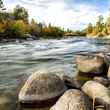
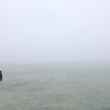
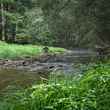
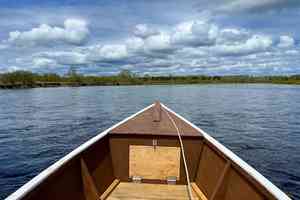


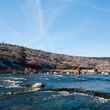
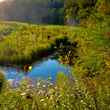
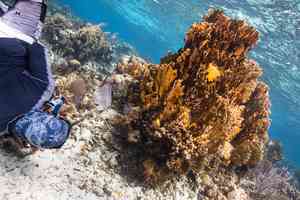


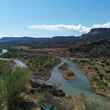
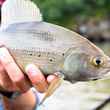



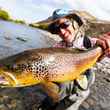






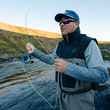


Comments
Frank replied on Permalink
Very interesting article, read beginning to end. But it left me with a mixed bag of emotions. Regardless of my beliefs on global warning, the story seemed to focus more on the loss of income for Montana versus the loss of a species in region. State economies ebb and flow, but to lose a specific species, to me, is more catastrophic. Perhaps angling for other fish in Montana rivers will become the norm. Who knows. But Montana will survive the economics of losing trout if that prediction holds true. The loss of trout though from a moral perspective bothers me.
Maybe in 60 years Elon will have invented an electric trout. Never say never.
Jim replied on Permalink
I'm looking at an article with the heading:
U.N. Threats in 1989
"Entire nations could be wiped off the face of the Earth by rising sea levels if the golbal warming trend is not reversed by year 2000".
I also recall a "Coming Ice Age" article in LIFE Magazine in the 1970's. Eithere bad science or bad politicas, or both, needs to get REASONAL and ACCURATE predictions in order for public trust in what is expected.
Chris replied on Permalink
You said a mouth full! Everything you read on the sport that I absolutely love is about money. The fish in these rivers and lakes are so important to the environment, but yet we focus on money. Thank goodness I’ll be dead by the time all this happens. Our lakes and rivers are so over fished that it’s surprising that we’ve even got fish to catch. Thanks again for your comment and having the stones to say it out loud!
Lou Wentz replied on Permalink
I'm commenting from the Bitterroot Valley at this moment. Livestock grazing and its associated ag practices are the biggest consumers of cold water that would normally feed the river. Poor riparian buffer in many places compound the problem. The West is over-grazed. The solution, ultimately, is at the end of your fork. We need to wean ourselves away from beef.
Pages